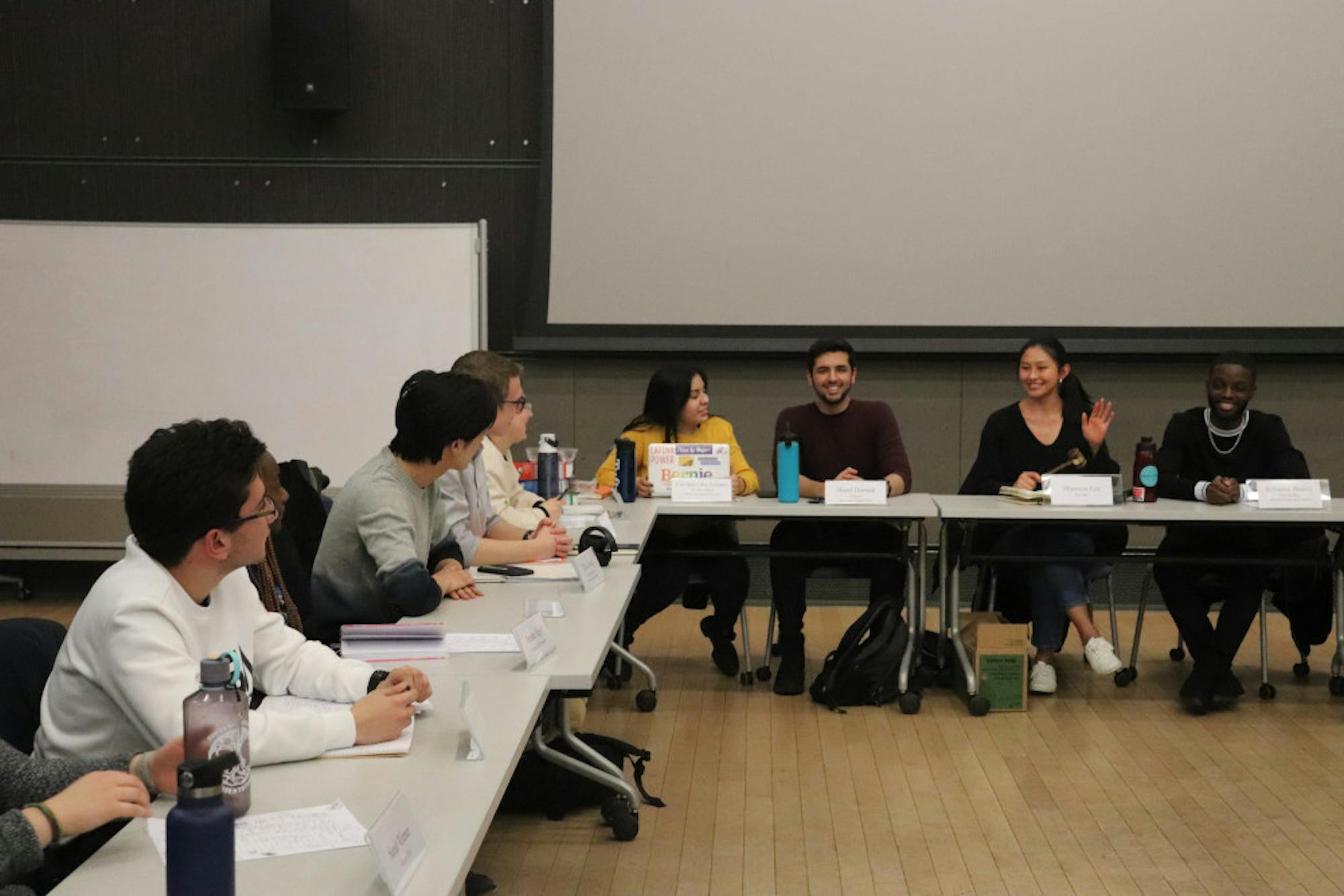Tufts Community Union (TCU) Senate concluded an academic year shortened by the ongoingCOVID-19pandemic with internal elections on April 26.
Internal elections were conducted with online Qualtrics surveys that were sent to each voting member of theSenate body. Outgoing TCU President Shannon Lee noted that usage of Qualtrics for the Senate’s internal elections was a useful trial run for a possibly more widespread usage of the platform in the future.
“The Elections Commissionis trying to move towards Qualtrics for their general and presidential elections instead ofVoatz,” Lee, a graduating senior, said. “I think this [is] a nice opportunity to try it out in a very low-stakes environment.”
Grant Gebetsberger, Rabiya Ismail and Tim Leongcontested the election for TCU Vice President, which Gebetsberger, a rising senior, won.
IncumbentTCU TreasurerSharif Hamidiwon re-election uncontested.
Taylor Lewis, Andrew Vu, Tim Leong and Ibrahim AlMuasher contested the election for TCU Parliamentarian, which Lewis, a rising senior, won.
Sarah Tata and José Martinezcontested the election for TCU Historian, which Martinez, a rising junior, won.
Jalen Little, Eve Abraha and incumbent Carolina Olea Lezamacontested the election for Diversity Officer, which Olea Lezama, a rising junior, won.
AlMuasher and Ismailcontested the election for the Administration and Policy Committee Chair, which Ismail, a rising junior, won.
Tata, Ismail and incumbentIyra Chandracontested the election for Education Committee Chair, which Chandra, a rising junior, won.
Amma Agyei and incumbentLittlecontested the election for Outreach Committee Chair, which Little, a rising sophomore, won.
Annika Witt and incumbentLeongcontested the election for Services Committee Chair, which Leong, a rising junior, won.
Eleven senators contestedsix seats on the Allocations Board.Tata, Little, Leong and Elizabeth Homall wonre-election while Ismail and Abraha filled the remaining two seats.
TCU Senatehad passedfive resolutions during the 2019–20 academic year beforecampus shut down in mid-March, halfway through the spring semester. Some addressed academic issues, such as the resolutioncalling for the publishing of course syllabi online. Others addressed national and global issues, such as the resolution calling for TCU Senate to stand with and support students with undocumented status and those withDeferred Action for Childhood Arrivals status.
One of TCU Senate’s accomplishments was the passage of a plan to eventually hold departmental faculty diversity consultations, in which professors could discuss issues around diversity, accessibility, equity and student support, according to Lee.
“This is something that Senate has pushed for many years, but we finally made a lot of headway on it this year which was really exciting,” Lee said.
TCU Senate alsolobbiedJames Glaser and Jianmin Qu, the respective deans of the Schools of Arts and Sciences and Engineering, to form a "task-force" that would reevaluateTufts’ World Civilization Requirement.
“[This] was one of the main objectives of [the] TCU Senate Education Committee this year but has been a subject of interest of TCU Senate since I was a first-year," Lee said.
Lee attributed the Senate's productivity this year to widespread agreement within the body about its mission.
“This year something that Senate did really well is we were all on the same page in terms of our goals,” Lee said. “I think people were really on the same page about why they’re on Senate [and] why they do this work.”
Shortly after University President Anthony Monacoannounced the closure of campus due to the COVID-19 pandemic, TCU Senateallocated $50,000 out of the student activities budget to the FIRST Resource Center to help students in need.
“When we found out about what happened with school shutting down, we immediately got to thinking about how [we could] use the student activities fee budget in a way that would be beneficial to the students,” Lee said.
When it was discovered that the original $50,000 would not be sufficient, TCU Senate allocated anadditional $50,000.
“With such quick turnaround, that money really did impact students and help students,” Lee said.
The closing of Tufts’ campuses also altered the way in which the Senate itself operated, according to Lee.
“We’re still engaging with senators, we’re still engaging with students,” Lee said. “It’s all virtual, which is obviously not the same, but it could be worse.”
With a number of other senior TCU Senate members graduating alongside her, Lee said that an important duty of future student leaders is to advocate on behalf of students who may not have the resources to continue learning online.
“Senate is in a really unique space to support students during this really uncertain time,” Lee said. “So I think there needs to be more efforts to be made on Senate’s part to advocate on behalf of students who don’t have the adequate home life situation to devote their full effort to their studies."






